news
OKADA RESTRICTION: SANWO-OLU’S ACTION IN THE BEST INTEREST OF LAGOS
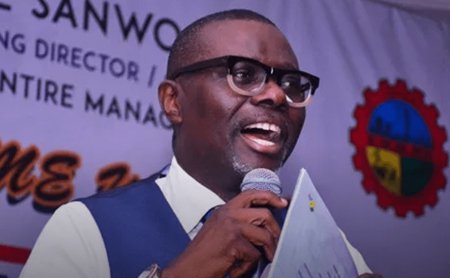

‘’If you care about the security of Lagos State, support your Governor on the restriction of Okada and Keke.’’ This was the submission of the former Governor of Lagos State and current Minister of Works, Mr. Babatunde Raji Fashola at a recent interaction with newsmen in Lagos.
I have followed news reports, commentaries, opinion articles and street reactions for and against the restriction on the commercial operations of Okada and Keke by my principal, Governor Babajide Olusola Sanwo-Olu in some parts of Lagos State. While some appear as balanced argument, especially along the economic line, which can’t stand as good reasons for policy reversal, several others were pure sentiment and emotional outbursts, mostly lacking in logical reasoning. A careful analysis of the subject matter has shown that there is a consensus among the protagonists and the antagonists that commercial motorcyclists and tricyclists have become a danger in Lagos; everybody knows and agrees to this red flag! In fact many of those against the Okada restriction, whether knowingly or unknowingly have called for total eradication of bicycles and tricycles in the city of Lagos.
A columnist, Bimbo Adelakun in the back page of the Punch newspaper on Thursday February 6th wrote:
‘’In principle, I am not against the ban on those vehicles themselves, but the timing and the execution of Sanwo-Olu’s decision. I believe that okadas and kekes have to go at some point. They are an urban nuisance, an ungainly sight, a blight, and an ugly blotch on Nigeria’s botched landscape. Those vehicles desecrate spaces and painfully highlight the un-citiness of our cities.”
Same with Bashorun Dele Momodu in his pendulum column at the back page of ThisDay newspaper submitted that:
”Apart from the population explosion and the stupendous traffic jams, Lagos is bedevilled by a major security conflagration. This arises from its metropolitan nature and its willingness to welcome and absorb all those who genuinely want to be a part of its miracle. The flip side of this welcoming attitude is that Lagos will also attract shady characters and nefarious elements. The recent influx of unidentifiable immigrants into Lagos is just a sample of this major headache and has further compounded the bad situation.”
There are several other writers who have taken a position either for or against this restriction. Many of them have offered what they, in their opinion think should be the best solution to the Okada menace. I see this as a good development for our fledgling democracy. However, one must remind these opinion writers that most of what they offered in their write ups were at one time or another, part of several suggestions placed before Government. One must also educate them that Government didn’t wake up to place restrictions on the commercial activities of bicycles and tricycles in parts of the city.
Deaths were being recorded on a daily basis as a result of the reckless nature of Okada riders. Security of lives was threatened, as Okada became the easiest form of mobility for criminals. Recklessness, disorderliness and total disregard to the traffic rules reigned supreme among the Okada and Keke riders.
Their behaviour has taken a toll on the social and environmental well-being of the people.
Government has a responsibility to protect the lives and property of its citizens. As Governor Sanwo-Olu said during the flag off of the commercial operations of Lagos Ferry services, his administration deemed it necessary to restrict the operation of commercial motorcycles and tricycles in some parts of the State, especially in six Local Governments, nine Local Council Development Areas (LCDA), 16 major highways and 41 bridges, where there have been records of security breaches, disobedience to traffic rules, accidents and untimely deaths caused by motorcycle and tricycle riders. The decision of the government is definitely in line with what he promised over 22 million Lagosians during his inauguration on May 29, 2019.
“We intend to make history by making for ourselves and our children a better future…Let us vow to ourselves, and to posterity that we shall not just dream of a Greater Lagos. Let us agree this day that we shall collectively rise up to build the Lagos of our dreams.
“My administration will ensure that we walk the talk as far as transparency, the rule of law and fiscal discipline are concerned. We will make sure that we create the right environment in which security and safety of lives and property are guaranteed…On this day, I vow as your Governor that I will serve the public cause with my utmost ability and commitment,” Governor Sanwo promised while delivering his inaugural address titled ‘Awakening a Greater Lagos’ on May 29, 2019 at Tafawa Balewa Square (TBS), Lagos.
Therefore, as a man who is passionate about pursuing his dream of a Greater Lagos, it is expected of him to do the needful in protecting the citizens of the state who trooped out en masse during the March 9, 2019 governorship poll to elect him as the Chief Executive of the commercial capital of Nigeria.
There is also a need to remind these commentators that one of the rare qualities of a leader is his ability to make tough decisions especially in the best interest of the people. As a great leader, Governor Sanwo-Olu believes in the greatest good for the greatest number. On the strength of this, Mr. Governor has said his decision to restrict the movements of Okada and Keke in the publicized locations is irreversible because it was made in the best interest of the residents.
Governor Sanwo-Olu, while launching eight locally manufactured speedboats of the Lagos State Ferry Services, LAGFERRY held at Badore Ferry Terminal, Ajah, reiterated that the decision was for security and safety reasons.
His said: “We will sustain the restriction on Okada and tricycles, mainly because of security and safety reasons. The security and safety of citizens are paramount to any government. As a responsible government, we will not fold our arms and allow any security breach in the state.
“We will continue to ensure the safety of our people on all fronts. There have been reports of serious security breaches and safety concerns in areas where these operators ply. We had to respond to these concerns because lives and safety matter to this government.”
Reports from different quarters have shown clearly that more people, including opposition parties in the state are fully in support of the step taken by the Government. None has outrightly disagreed with the restriction policy but many of them have raised concerns about provision of alternative for commuters and riders who were affected by the order.
In answering the above question, less than 24 hours after the enforcement of the restriction, Governor Sanwo-Olu ordered the release of 65 buses to immediately begin operations. There are plans for additional 550 buses for the feeder roads. This is to ameliorate the challenge being faced by the residents. Also, the continuation of massive rehabilitation of roads across the state is part of efforts by the government to give the residents a great lease of life.
Corroborating the Governor’s position, the National Publicity Secretary of the Action Democratic Party (ADP), Mr. Adejare Adeoye, in a press statement he signed and issued on Monday said: “Sanitising Lagos State and getting rid of these lawless miscreants that have been invading Lagos in droves for many years is a welcome development and good step in the right direction. Many of them hide under the pretense of riding Okada and Keke during the day, while they strategically distribute themselves in inner and exterior parts of Lagos State committing all manners of crimes and untold hardship on residents.
“Security of lives and properties in any part of Nigeria is a business of all citizens of Nigeria, so, undocumented invaders, should not be allowed in any part of the country, as there is serious need for vigilance due to the growing rate of terrorism, banditry, kidnapping, thuggery, mindless killings and other criminal activities.
“Many of these guys are invaders, who must be checked and be sent back to wherever they came from. At least, on two occasions, they have shown their true colors, when they went to attack Ejigbo Police Station in Oshodi-Isolo, around 11pm at night, which caused panic in the area. At another time, they went to attack a local government, because a task force official of the local council demanded for the normal levy, which they refused to pay, hence their bike got confiscated, instead of following lawful ways to get the issue resolved, they resulted to lawless act by setting the local government council on fire. This is brutal, crude, mindless, and must be stopped.
“We cannot afford to open our eyes, while these aliens take over the entire Lagos, because if not quickly arrested, we won’t all be able to sleep, as another type of insurgents might spring up, and will be troubling everyone of us in the State. When our lives is threatened by invaders, we must learn to eschew politics of bitterness and stand by the truth.”
Also speaking on the issue, a security expert and President of Association of Industrial Security and Safety Operators of Nigeria, Dr. Ona Ekhomu, said the restriction was necessary to bring sanity back to Lagos roads.
He disclosed this during an interview published on Saturday, February 1 edition of The Punch Newspaper.
Ekhomu said, “The ban on okada and keke on some routes in Lagos has some advantages. I think the government has done well in a civil manner by listing the roads where they are to stop plying. Any commercial motorcycle or tricycle rider that is affected should simply look for other routes to ply because it is good to have sanity on the road.
“Those that used to ply Ikorodu road around the Ketu and Mile 12 axis had hitherto constituted nuisance. A society without rules and regulations is a lawless society, so, I think that they should abide by it.”
A governorship candidate in the 2019 governorship election in Lagos State, Mr. Babatunde Gbadamosi, without any iota of doubt is a passionate Lagosian who wants the best for Lagos State and this is the reason he contested to govern the State on three occasions. Despite the political differences between him and Governor Sanwo-Olu, Gbadamosi hailed Lagos State government for taking a bold step to restrict the operation of the commercial motorcycles.
“There is no doubt in my mind that something needed to be done about the clear and present danger that many Okada & Keke operators had come to constitute to the lives and limbs of Lagosians, as well as their safety and security, with the invasion of Ajeromi-Ifelodun LGA HQ still fresh in our minds, as well as several recently reported incidents of attempted lynchings by mobs of Okada riders over traffic incidents. To that extent, one must commend the government for making some kind of decision,” he stated in a Facebook post titled “Transport for Lagos PT 2” on Tuesday, February 4.
The icing on the cake is the support by the ruling political party, the All Progressives Congress. Commenting on the restriction, the State Publicity Secretary of the party, Hon. Seye Oladejo, said people remained the focal point of Governor Sanwo-Olu’s administration.
His words: “Let me recall that the law being implemented has been in place for over six years after painstaking efforts by the Lagos State house of assembly to incorporate in-puts from all stakeholders. The gradual implementation of the law is a reflection of the thoughtfulness of the government not to create a shock in the polity.
“While he noted the reasons for the partial ban, it was convenient not to acknowledge the measures put in place by government to stem the impact. May I use this medium to acknowledge and appreciate the voluntary compliance of some operators in line with the laws of the state. We also wish to encourage the riders to take advantage of opportunities offered by the Lagos State Employment Trust Fund, the Lagos State Vocational Training Institutes, the ministry of women affairs and poverty alleviation, civic engagement etc. The people remain the focal point of the Sanwo-Olu administration while not losing sight of its onerous responsibility to ensure the safety of lives and property of the citizenry.”
Reading through the views of many people, it is clear to me that this action taken by Governor Babajide Sanwo-Olu’s administration is in the best interest of Lagos State and all the residents.
It should however be noted that this is not the first time that Lagos State government will be restricting the operation of commercial motorcycles in the State. Former Governor Babatunde Fashola’s administration in 2012 banned Okada in some parts of Lagos due to increase in crimes and high records of accident victims in government hospitals, a move that saw a drastic reduction in crime rate and Okada-related hospital enrolments.
* by Akosile is the Chief Press Secretary to Lagos State Governor.
news
BREAKING: Tinubu replaces Service Chiefs, names Gen. Oluyede CDS
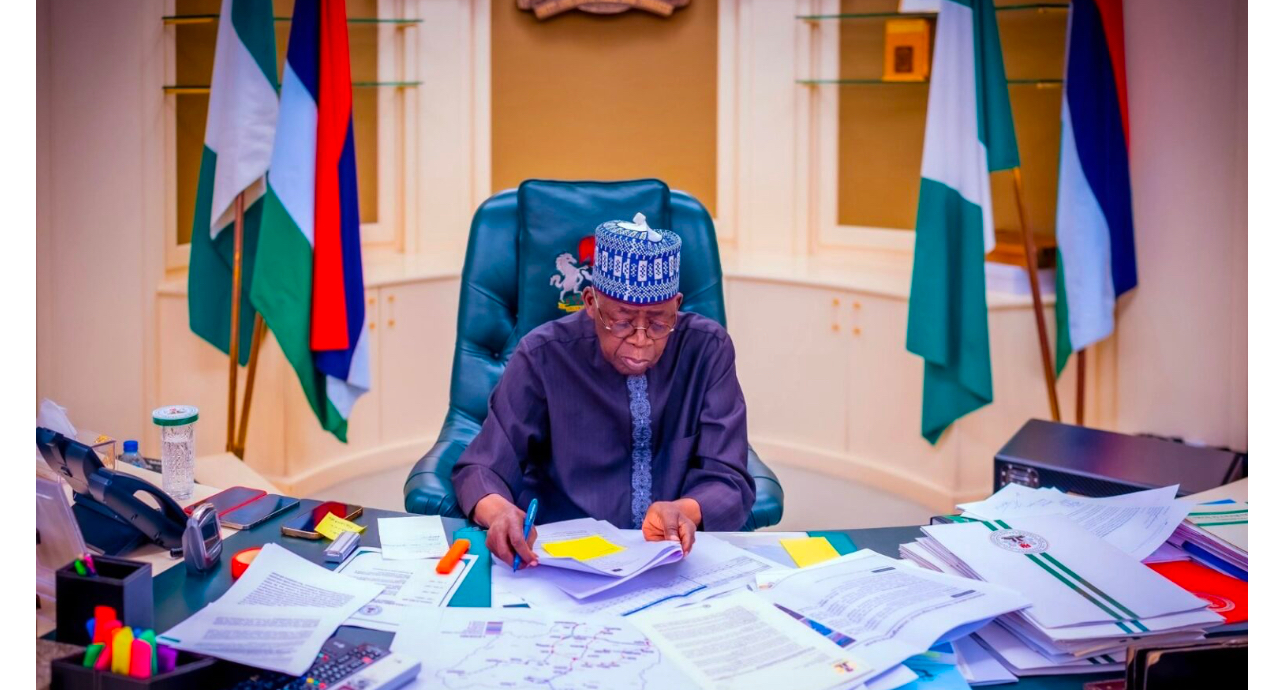
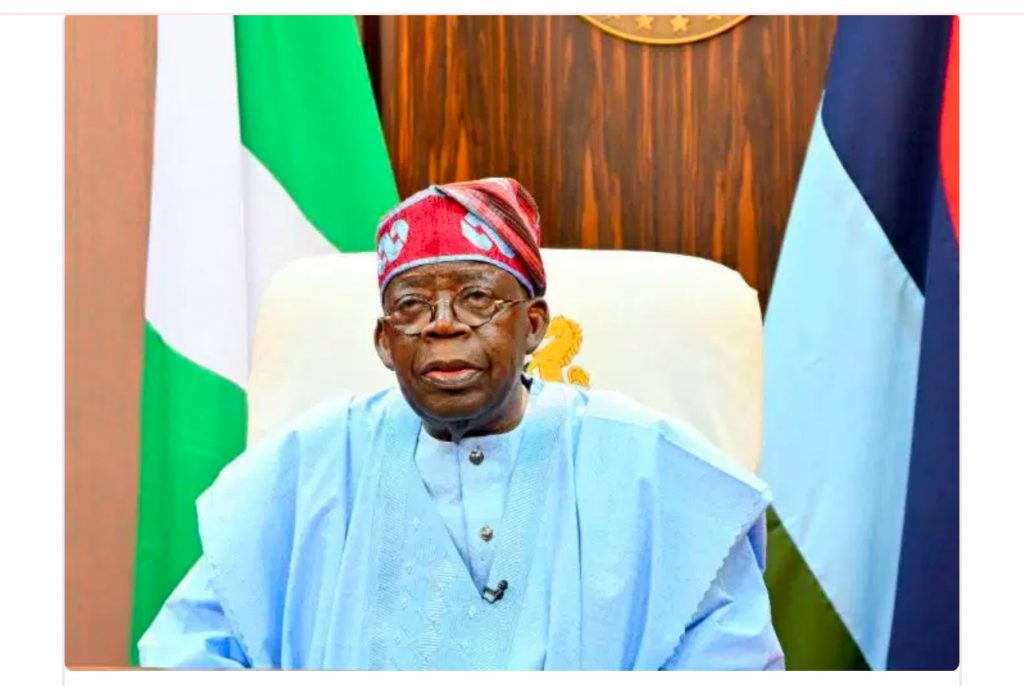 President Bola Ahmed Tinubu has approved major changes in the leadership of the Armed Forces, appointing new Service Chiefs in a decisive move aimed at strengthening national security architecture.
President Bola Ahmed Tinubu has approved major changes in the leadership of the Armed Forces, appointing new Service Chiefs in a decisive move aimed at strengthening national security architecture.
According to a statement on Friday by his Special Adviser on Media and Public Communication, Chief Sunday Dare, the President named former Chief of Army Staff, Lt. General Olufemi Oluyede as the new Chief of Defence Staff, replacing General Christopher Musa.
Major-General W. Shaibu has been appointed Chief of Army Staff, Air Vice Marshal S.K. Aneke takes over as Chief of Air Staff, while Rear Admiral I. Abbas is the new Chief of Naval Staff.
The Chief of Defence Intelligence, Major-General E.A.P. Undiendeye, retains his position.
All appointments, the statement said, take immediate effect.
President Tinubu, who is also the Commander-in-Chief of the Armed Forces, expressed deep appreciation to the outgoing Chief of Defence Staff, General Musa, and other retired Service Chiefs for their “patriotic service and dedicated leadership” during their tenure.
He charged the newly appointed military heads to justify the confidence reposed in them by demonstrating “enhanced professionalism, vigilance, and comradeship” in the discharge of their duties.
The shake-up in the military hierarchy comes as part of ongoing efforts by the Tinubu administration to reposition the security sector, improve coordination among the services, and sustain momentum in the fight against terrorism, banditry, and other security challenges across the country.
news
JUST IN: Court Rejects “Terrorists’ Negotiator” Tukur Mamu’s Third Bail Application
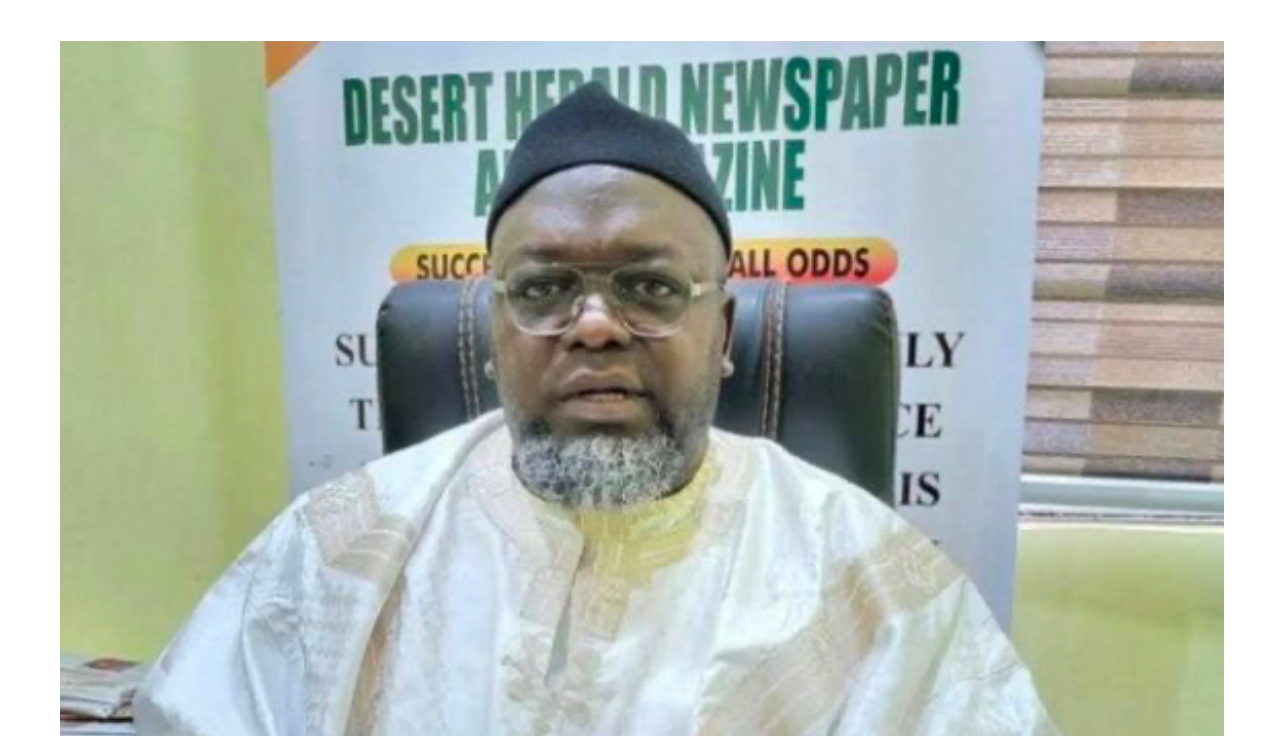
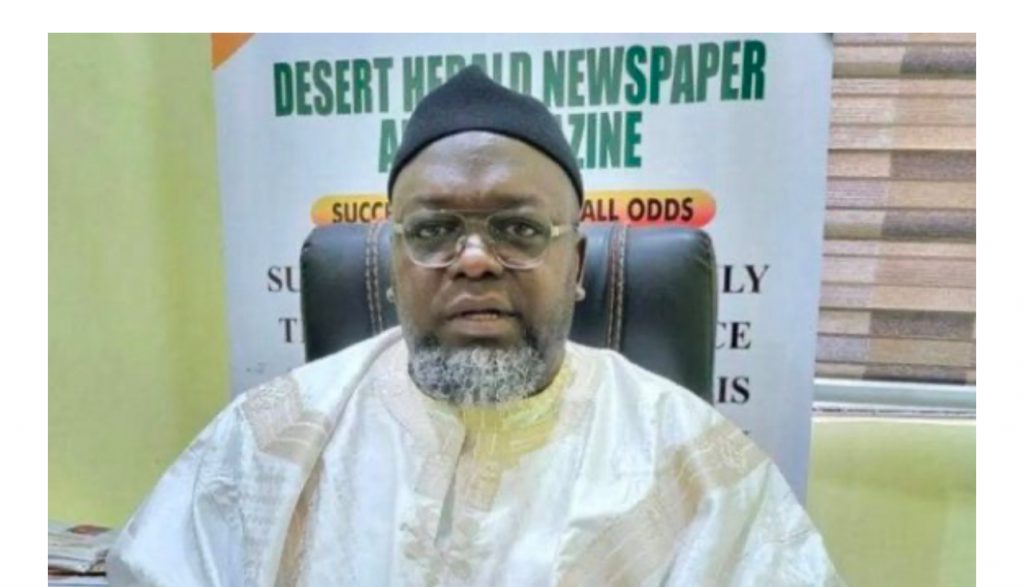
A Federal High Court in Abuja has rejected a fresh application for bail filed by detained alleged terrorists negotiator, Tukur Mohammed Mamu.
Justice Mohammed Umar, in a ruling on Wednesday, noted the health complaint by Mamu and held that the detaining authority, the Department of State Services (DSS) should not release him but take him to an appropriate health facility where he would be adequately attended to.
Justice Umar noted that, by the history of the case so far, the prosecution has exhibited diligence in it handling of the case and exhibited diligence in prosecuting the case.
The judge said one of the reasons for granting bail is where the prosecution is not diligent, noting that since the prosecution in this case is diligent, the application for bail cannot be granted.
He subsequently ordered that the defence lawyer should choose the health facility comfortable to the defendant, to which he should be promptly taken.
He also asked the DSS to allow the defendant access to members of his family.
The ruling on Wednesday is the third time the court will reject his application for bail since his was arraigned on March 21, 2023 by the Federal Government on a 10-count charge bordering on terrorism financing, among others.
Mamu was arrested on September 7, 2022 by Egyptian security officials at the Cairo International Airport, on reasonable suspicion of financing Boko Haram terrorism activities.
He was alleged to have convinced the terrorists to discuss ransom payments with individual families of the hostages of the train attack instead of the Chief of Defense Staff Committee set up by the Federal Government for his personal financial gain.
He was said to have been nominated by the terrorists that attacked the Abuja-Kaduna bound train sometime in March 2022 which took scores of persons hostage.
Mamu was alleged to have collected ransoms on behalf of the Boko Haram terrorists from families of hostages, confirmed the amount and facilitated the delivery of same to the terrorists.
news
BREAKING: ASUU suspends two-week warning strike
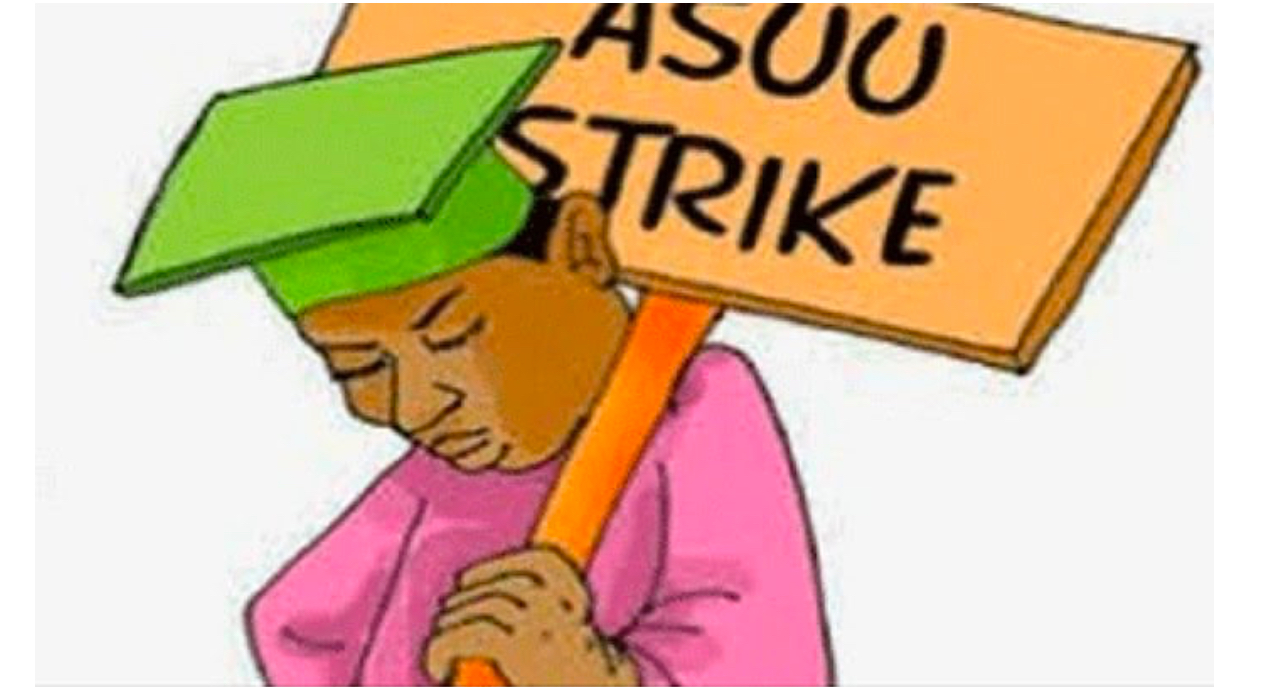
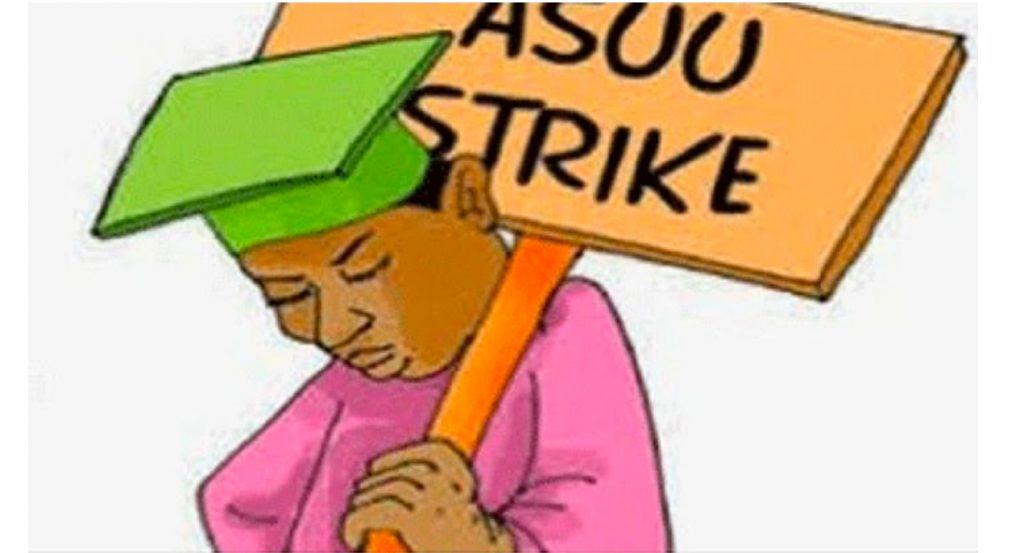
The Academic Staff Union of Universities has announced the suspension of its ongoing two-week warning strike.
The National President of ASUU, Prof. Chris Piwuna, made this known in an ongoing press briefing in Abuja on Wednesday.
According to Piwuna, the decision stemmed from the meeting of the National Executive Council meeting which was held overnight and ended by 4:00 am on Wednesday.
Piwuna noted that the union decided to embark on the strike due to the failure of the government to meet its demands on time.
“We’ve had useful engagements with representatives of the government to consider the response to the draft renegotiation of the 2009 agreements. However, we are definitely not where we were prior to the commencement of the strike.
-

 news5 years ago
news5 years agoUPDATE: #ENDSARS: CCTV footage of Lekki shootings intact – Says Sanwo – Olu
-

 lifestyle5 years ago
lifestyle5 years agoFormer Miss World: Mixed reactions trail Agbani Darego’s looks
-

 health5 years ago
health5 years agoChairman Agege LG, Ganiyu Egunjobi Receives Covid-19 Vaccines
-

 lifestyle4 years ago
lifestyle4 years agoObateru: Celebrating a Quintessential PR Man at 60
-

 health5 years ago
health5 years agoUPDATE : Nigeria Records 790 new cases of COVID-19
-

 health5 years ago
health5 years agoBREAKING: Nigeria confirms 663 new cases of COVID-19
-

 entertainment9 months ago
entertainment9 months agoAshny Set for Valentine Special and new Album ‘ Femme Fatale’
-

 news5 months ago
news5 months agoBREAKING: Tinubu swears in new NNPCL Board


